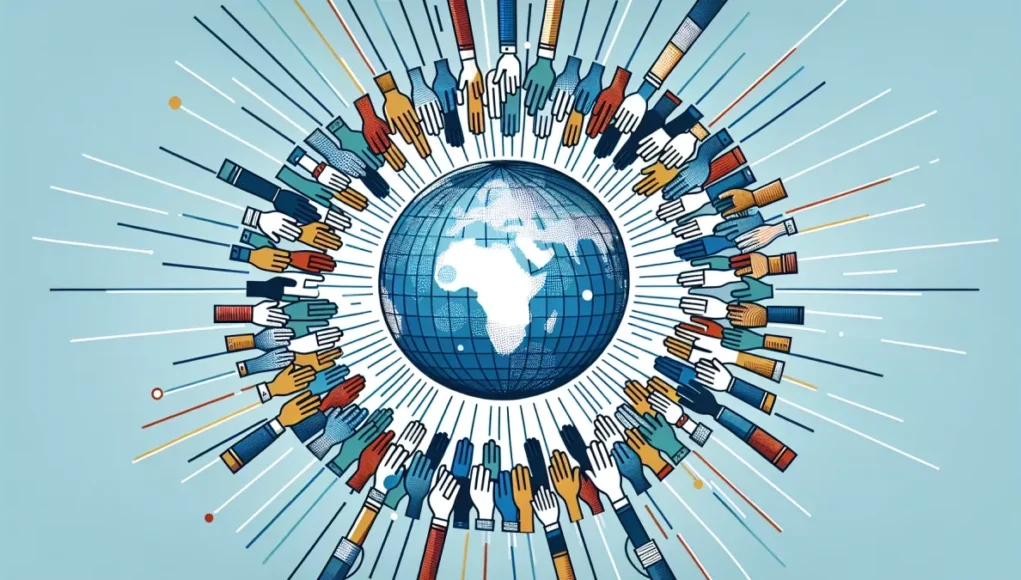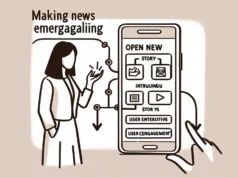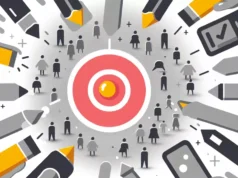In a rapidly evolving digital world, the influence and reach of global news have witnessed unprecedented expansion through the power of collaboration. Various news outlets worldwide are pooling resources, sharing perspectives, and employing technological advancements to extend the scope of their coverage and impact.
Historically, the world was dependent on few primary news providers that had exclusive access to information. Today, a transformational shift is observable as news media outlets, even those with established editorial boards and a distinctive voice, are recognizing the value and necessity of global collaboration.
The advent of the internet has made the world a global village, bringing closer both the news and its readership. However, this unprecedented proximity to information also crystallized a new challenge – the dissemination of misinformation. Driven by the need to ensure the accuracy of the facts being shared and combat fake news, media houses are beginning to align with each other and reputable fact-checkers. Collaborative efforts like these ensure that fact-checked news reaches as many people as possible, creating a vibrant and informed global citizenry.
One potent example of such collaboration is the joint venture by ABC News, NBC News, Al Jazeera and other global news giants who partnered to expose Panama Papers—the biggest data leak in history. The International Consortium of Investigative Journalists (ICIJ) brought together 107 media organizations in 76 countries, leading to widespread awareness of offshore money-laundering and tax evasion.
Apart from pooling resources to improve the quality of reporting, global news groups are also joining forces to increase the breadth of their reach. The Global Editors Network(GEN), for instance, sees numerous media organizations networking to enrich journalism worldwide. GEN explores innovative journalism practices and shares ideas across member organizations, enabling them to stay ahead of evolving trends and continuously improve their output.
Another transformative collaboration can be seen in Climate Publishers Network (CPN), initiated by The Guardian and El País. CPN gathers climate change reports from media across the world and allows member networks to publish them free of charge. This breakthrough move not only helps in broadening the geographic reach of news reports but also amplifies critical issues like climate change on the global stage.
Collaboration also extends beyond traditional media houses. Tech giants like Google have introduced initiatives like the Google News Initiative (GNI) aimed at supporting quality journalism through technology and innovation. In 2020, Google partnered with Parlio for a verification initiative to combat misinformation on COVID-19.
Leveraging digital technology allows news organizations to present a multi-dimensional view of global stories, promoting a broader understanding of the world. Participatory journalism platforms where citizens can contribute news stories and analysis directly to mainstream media organizations are growing in popularity. The Guardian’s Witness platform and the CNN iReport are notable for bringing people closer to journalistic processes.
In conclusion, while collaboration in global news coverage may present challenges, including competition for exclusivity and potential compromise on individual editorial lines, it indisputably provides a route to more accurate, widespread, and democratic news dissemination. As news organizations adjust to new realities in the digital age, the reinvention of global news through collaboration continues to foster a better-informed and connected global society.
The future of journalism is dynamic and evolving. As collaborative models gain momentum and technology reigns supreme, the boundaries that once constrained global news coverage are shifting, promising an era of amplified voices, diverse narratives, and robust news ecosystem.
Sources:
1. Google News Initiative
2. International Consortium of Investigative Journalists
3. Global Editors Network
4. Climate Publishers Network
5. The Guardian’s Witness platform
6. CNN iReport.






